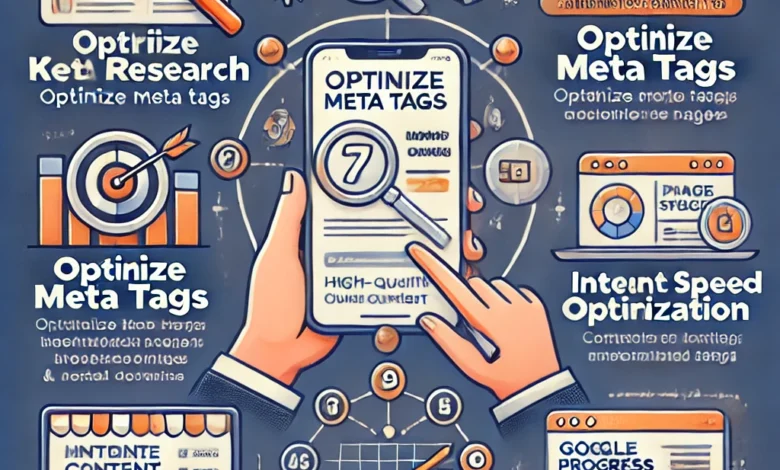7 Essential SEO Strategies to Boost Your Website Ranking

7 Essential SEO Strategies to Boost Your Website Ranking
In today’s digital age, it’s crucial to ensure that your website is optimized for search engines. Effective SEO can help you rank higher on Google, drive more traffic, and ultimately increase your conversions. Let’s dive into the 7 essential SEO strategies you should implement today!
1. Keyword Research: The Foundation of SEO
Image Description: A screenshot of Google Keyword Planner tool displaying a list of keywords with search volumes and competition ratings.
Keywords are the backbone of SEO. Using tools like Google Keyword Planner, SEMrush, or Ahrefs, you can find relevant keywords that align with your target audience’s search behavior.
2. Optimize Your Meta Tags
Image Description: A browser snippet showing a well-optimized title tag and meta description.
Ensure your title tags and meta descriptions are concise, compelling, and include primary keywords. This is often the first thing users see on search results, making it essential for click-through rates.
3. Mobile Optimization is a Must
Image Description: A mobile phone displaying a website that is fully optimized and easy to navigate.
Google prioritizes mobile-friendly websites, so ensure your site is responsive and works seamlessly across all devices.
4. Content is King
Image Description: A person writing a blog post on a laptop with a headline that reads, “High-Quality Content.”
High-quality, relevant content keeps users engaged and signals to search engines that your site offers value. Make sure to regularly update your blog with informative articles.
5. Page Speed Optimization
Image Description: A web performance graph showing a significant improvement in page load time.
Google considers page speed as a ranking factor. Tools like Google PageSpeed Insights can help you identify issues and improve your site’s loading time.
6. Internal and External Linking
Image Description: A diagram showing internal links connecting different pages on a website and external links leading to authoritative sources.
Linking to other relevant content on your site helps search engines understand your website’s structure, while external links to authoritative sources improve your site’s credibility.
7. Track Your Progress with Analytics
Image Description: A Google Analytics dashboard showing traffic and user behavior reports.
SEO is an ongoing process. Use tools like Google Analytics and Google Search Console to track your progress, monitor traffic, and adjust strategies as needed.
By implementing these SEO strategies, you’ll not only improve your rankings but also enhance the user experience on your website. Remember, SEO is a marathon, not a sprint—stay consistent, track your progress, and make adjustments along the way!



